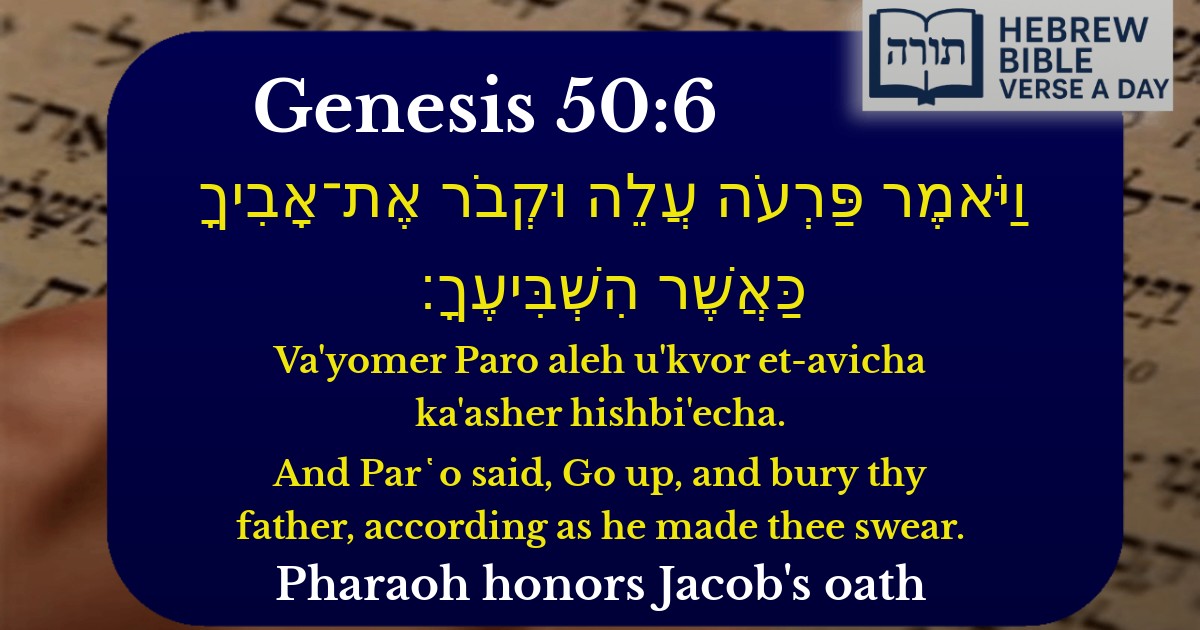Join Our Newsletter To Be Informed When New Videos Are Posted
Join the thousands of fellow Studends who rely on our videos to learn how to read the bible in Hebrew for free!
Hebrew Text
וַיֹּאמֶר פַּרְעֹה עֲלֵה וּקְבֹר אֶת־אָבִיךָ כַּאֲשֶׁר הִשְׁבִּיעֶךָ׃
English Translation
And Par῾o said, Go up, and bury thy father, according as he made thee swear.
Transliteration
Va'yomer Paro aleh u'kvor et-avicha ka'asher hishbi'echa.
Hebrew Leining Text
וַיֹּ֖אמֶר פַּרְעֹ֑ה עֲלֵ֛ה וּקְבֹ֥ר אֶת־אָבִ֖יךָ כַּאֲשֶׁ֥ר הִשְׁבִּיעֶֽךָ׃
וַיֹּ֖אמֶר פַּרְעֹ֑ה עֲלֵ֛ה וּקְבֹ֥ר אֶת־אָבִ֖יךָ כַּאֲשֶׁ֥ר הִשְׁבִּיעֶֽךָ׃
🎵 Listen to leining
Parasha Commentary
📚 Talmud Citations
This verse is not quoted in the Talmud.


Pharaoh's Permission for Burial
The verse (Bereishit 50:6) records Pharaoh granting Yosef permission to bury his father Yaakov in Eretz Canaan, as Yaakov had made Yosef swear to do. This interaction reveals several important insights according to traditional Orthodox Jewish commentators:
Rashi's Explanation
Rashi notes that Pharaoh didn't simply say "bury your father" but used the language "go up" (עֲלֵה), indicating:
Midrashic Insights
The Midrash (Bereishit Rabbah 100:4) elaborates on this exchange:
Halachic Dimensions
Rambam (Hilchos Avel 12:1) derives from this verse:
Symbolic Meaning
The Kli Yakar offers a deeper interpretation: